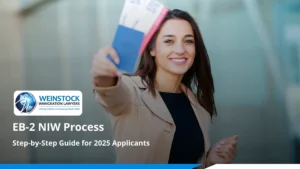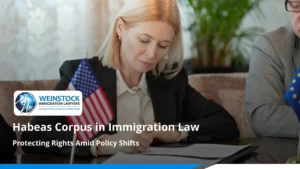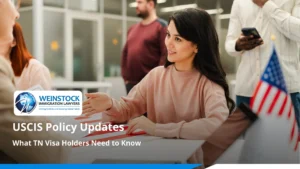Goodbye Public Charge Rule
The Biden administration on Thursday, March 11, 2021, formally said goodbye to the Trump-era public charge rule, which tightened restrictions on poorer immigrants seeking U.S. residency, as a dozen GOP state attorneys general scrambled to preserve it.
The Department of Homeland Security’s (DHS) 2019 public charge rule –required petitioners and applicants for certain immigration benefits to disclosing information concerning their receipt of public benefits and, for some, detailed financial information – is no longer in effect after the U.S. government withdrew its pending lawsuit appeals, and a lower court decision invalidating the rule was reinstated. As a result, the agency’s 1999 field guidance on public charge admissibility – the policy in place before the 2019 DHS public charge rule – is back in effect.
U.S. Citizenship and Immigration Services has confirmed that, as of March 9, 2021, foreign nationals no longer need to provide information solely required by the 2019 regulation. This means that applicants for adjustment of status to a permanent residence are no longer obligated to submit Form I-944, the declaration of self-sufficiency, and related documentation. Likewise, applicants for nonimmigrant changes and extensions of status are not required to respond to questions about receipt of public benefits on Forms I-129, I-539, and I-539A. For affected applications and petitions pending on March 9, USCIS will not consider information solely required by the 2019 public charge regulation in adjudicating the case. Things you should know if you think you are affected by the ‘Public Charge’ Rule:
- As of March 9, 2021, the DHS public charge rule is no longer in effect.
- Adjustment of status applicants are no longer required to submit Form I-944 declarations of self-sufficiency and related documentation as of that date.
- Applicants for nonimmigrant changes of status and extensions of stay are no longer required to respond to questions about their receipt of public benefits.
- The change results from the Biden administration withdrawing its pending government appeals on challenges to the rule, therefore allowing a lower court order vacating the rule to take effect.
Related Posts

Navigating the EB-2 NIW Process: A Step-by-Step Guide for 2025 Applicants
Summary The blog explains how the EB-2 National Interest Waiver (NIW) offers a pathway for skilled professionals and researchers to secure U.S. permanent residency without

Habeas Corpus in Immigration Law: Protecting Rights Amid Policy Shifts
Overview: The principle of habeas corpus is a cornerstone of constitutional law in the United States, protecting individuals from unlawful detention and ensuring their right

USCIS Policy Updates: What TN Visa Holders Need to Know (2025)
The TN Visa is a vital pathway for Canadian and Mexican nationals looking to work in the United States under the USMCA (formerly NAFTA). For
